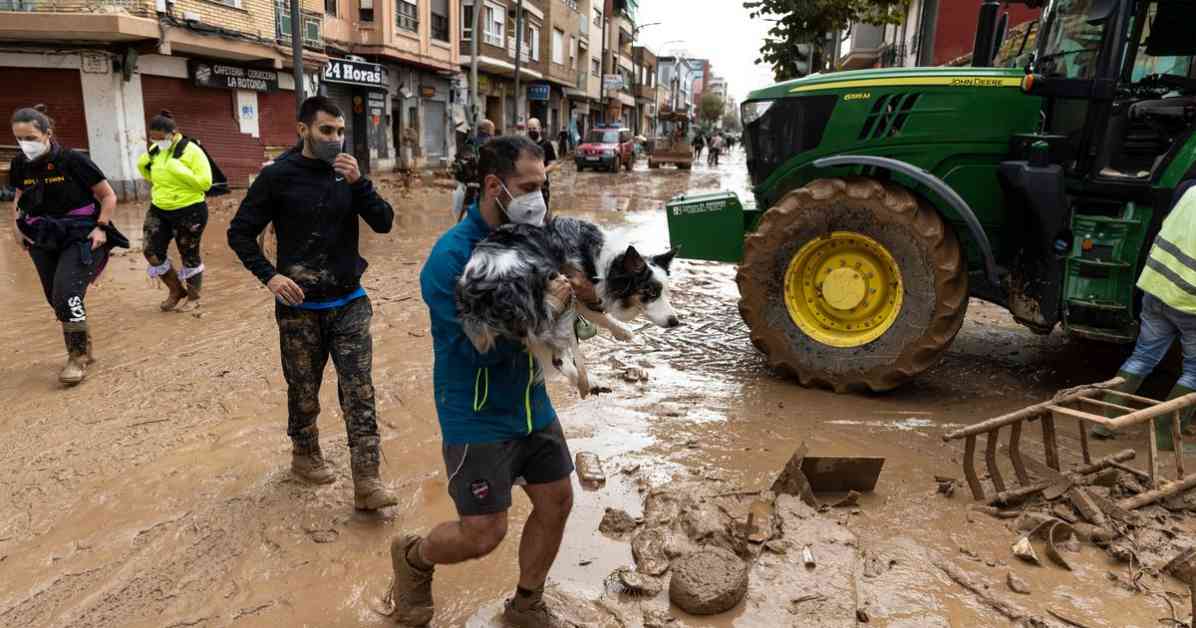Travellers heading to Spain are being cautioned about the escalating health risks following the devastating floods that have claimed hundreds of lives. The aftermath of the floods has resulted in thousands of volunteers participating in clean-up efforts, exposing themselves to highly contaminated mud, sparking concerns of a potential disease outbreak. Reports from local news outlets indicate that there is growing apprehension in Paiporta over the possibility of widespread infection due to the putrefaction in the streets following the storm. Health authorities are issuing warnings about the increased risk of infection in these areas as individuals flock to the hardest-hit towns to assist in the removal of mud from streets, residences, and businesses.
Efforts are being made by those affected to seek more assistance from the authorities while expressing gratitude to fellow citizens who are rallying to help in any way possible. The multitude of volunteers engaged in post-DANA relief operations are advised to wear masks and gloves to mitigate the risk of contagion, a common concern in the aftermath of flooding where putrefaction mixes with chemicals after days of waterlogging. The death toll currently stands at 217, with hundreds still reported missing. The stagnant water, along with the presence of deceased bodies, sewage water, chemicals, and fluids from numerous damaged vehicles, creates an ideal environment for the transmission of diseases among individuals coming into contact with the contaminated mud.
Preventative measures recommended by Public Health officials to reduce the risk of infections include the use of masks, gloves, waterproof boots, long-sleeved clothing, and thorough washing with soap after exposure to the mud. Infections resulting from contact can lead to bacterial gastroenteritis or hepatitis, emphasizing the importance of adhering to safety protocols. Health experts, in collaboration with regional ministers, have mobilized an immediate response health group to assess and address the evolving situation in the affected areas.
As the clean-up efforts continue, experts stress the importance of reinforcing protective measures against potential infections, especially for volunteers and residents who have been working tirelessly without adequate protection. Safety precautions during the cleaning process include turning off gas and electricity, wearing appropriate protective gear, ventilating enclosed spaces, and following proper disposal protocols for contaminated materials. Vulnerable populations, such as children, pregnant women, and individuals with respiratory conditions or weakened immune systems, are advised to refrain from participating in the clean-up activities.
In addition to safety guidelines, residents are urged to refrain from consuming food that may have come in contact with floodwater and to properly discard materials that cannot be effectively cleaned and dried within 24 to 48 hours to prevent the proliferation of microorganisms and mold. The tragic discovery of a missing British couple who perished in the floods underscores the severity of the situation, with over 200 confirmed fatalities reported thus far. The Foreign, Commonwealth, and Development Office are providing support to the bereaved family while coordinating with local authorities to address the crisis.
The devastating impact of the floods in Spain serves as a stark reminder of the urgent need for comprehensive disaster preparedness and response strategies to safeguard public health and safety in the face of natural disasters. The collaborative efforts of government agencies, health authorities, and volunteers are crucial in mitigating the health risks and promoting recovery in the affected regions. As the situation unfolds, continued vigilance, adherence to safety protocols, and community support are essential in navigating the challenges posed by the aftermath of the catastrophic floods in Spain.













